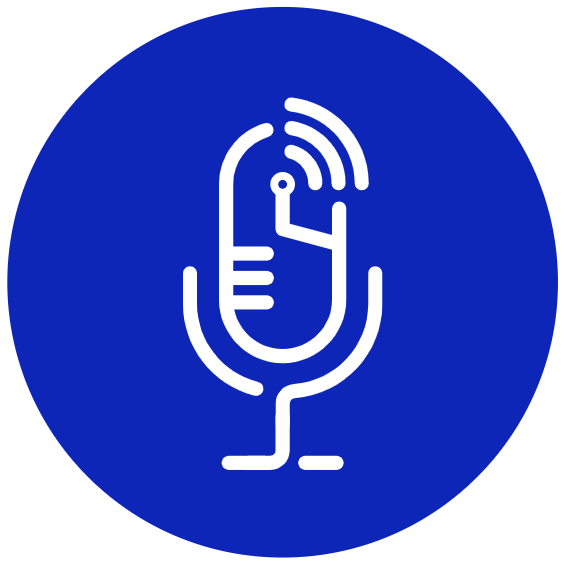Disclosure: This post may contain affiliate links. Purchasing a product through one of these links generates a commission for us at no additional expense to you.
Are you looking to promote your podcast so you can gain more listeners? If so, you’re on the right track.
In the digital age, even the best audio content can get lost in the mix if you don’t advertise it.
Fortunately, marketing your podcast can be simple.
With the right tools at your disposal, you can easily promote your podcast on multiple platforms and boost your search engine rankings too.
In this post, we’ll cover why you should promote your podcast. Then, we’ll look at three simple strategies to help you create a successful marketing campaign for your show.
Let’s get started!
Why you should promote your podcast (every episode)
Every podcast creator has a different set of motivations, but most share a common goal: getting more listeners.
Whether it’s a passion project or a business endeavor, the universal aim is to reach people through your audio.
Unfortunately, more than 25 percent of all podcasts end up publishing just one episode. Promoting your podcast may help you avoid a similar fate.
When done right, promotion helps you build an audience. This can provide the motivation and resources you need to keep going with a project.
The sooner you start marketing your podcast, the better. Creating hype pre-launch, post-launch, and for each individual episode can significantly boost your listenership. Essentially, you never want to stop your efforts to attract new listeners.
What’s more, promoting your new or ongoing show offers you the opportunity to establish your podcast branding. This can help make your show stand out in an increasingly crowded industry.
How to promote your podcast (3 simple strategies)
While promoting your podcast may seem intimidating at first, it’s actually quite simple.
Here are three tips you can easily implement to market your episodes and grow your audience.
1. Build a podcast website
Creating a website is an essential component of a successful podcast marketing strategy. Your site can offer essential information and serve as a hub for your listeners:

We recommend that you build your website on WordPress. This Content Management System (CMS) is very user-friendly and comes with many customization options.
Before you get started, you may want to consult a beginner’s guide on how to build a podcast website.
Additionally, you’ll likely want to take your time researching and choosing an eye-catching theme. Our service, SecondLine Themes, offers quality options for WordPress sites.
A beautiful and professional-looking website sends a clear message to your audience. Therefore, it can make a real impact on the success of your podcast. What’s more, it’s one of the key visual components that make up your branding strategy, so you’ll want to invest time and effort in maintaining it.
Your website should include key information such as an about page and an episode archive. You may also want to include episode download links so that listeners can easily navigate from your site to your audio content.
Audience engagement is crucial to the success of your podcast. Therefore, you might want to consider how you can utilize social media to promote your show and engage your followers.
We recommend that you try to post early and often. As we mentioned before, building up hype before your podcast launches and when each episode is released can greatly boost your reach:

You can also repurpose your website content for social media. For example, if you want to create buzz before your launch, you can use the information on your website’s about page as a standalone, introductory post on Instagram.
Moreover, you can customize your social content to make it more engaging. For instance, you can combine tools with your podcasting software to create audio snippets that are catered to each individual platform.
Furthermore, consistency is crucial, so you may want to consider creating a social media content calendar. In addition to sharing content regularly, you can run giveaways and host Q&As. If you take a more comprehensive approach, you may be able to create a dedicated podcast audience.
3. Create an effective SEO strategy
Search Engine Optimization (SEO) is becoming increasingly important, no matter what CMS or platform you use. In a nutshell, leveraging SEO means that you optimize your content so that it can be more easily found in a Google search. Essentially, you’re aiming to improve your search rankings.
There are many components that make up a strong SEO strategy. Some of the most important elements include keyword research, internal linking, link building, and the overall quality of your content.
Consider using tools such as Google Ads to establish your keyword strategy. Additionally, you may want to check out the Yoast SEO plugin, which is perfect for beginners:

For podcast SEO, you’ll want to put an emphasis on all forms of your written content. This may mean your show notes, episode transcripts, and even episode titles. It’s highly important as it affects both your ranking on podcast platforms (like Apple Podcasts and Spotify) and on search engines like Google.
Conclusion
Promoting your podcast may seem like a lot of work when you’re already spending so much time creating quality audio content. However, promotion is essential if you don’t want your podcast to get lost in the shuffle.
Just remember these simple strategies, and you can drastically improve your podcast’s chances at success:
- Build a podcast website
- Leverage social media
- Create an effective SEO strategy
And if you’re looking for the perfect WordPress theme to bring your podcast website to life, check out SecondLine Themes to find designs that are specifically crafted with podcast creators in mind!
Thanks for reading!


